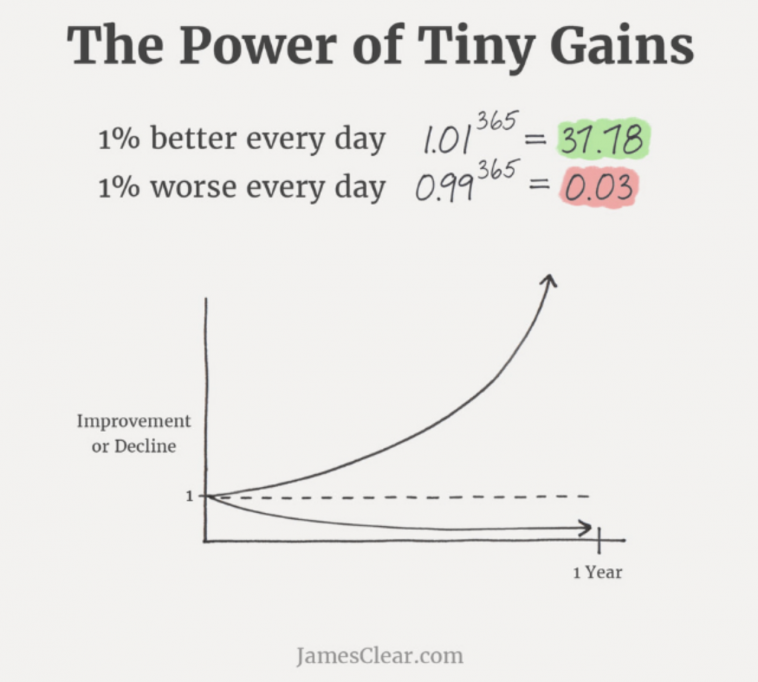Positive Habits: Small Beginnings, Big Changes – The Secret to Daily Success
Date: 2025.07.03
Positive Habits: Small Beginnings, Big Changes
Every morning when the alarm goes off, you battle with yourself: “Today I will change, I will exercise, eat healthy, read more books…” But then by evening, you’re disappointed because another day has passed without any real change.
Does this story sound familiar? Millions of people worldwide are stuck in this endless loop. They know they need to change, they want to change, but they don’t know how to start correctly. The problem isn’t motivation or willpower, but the wrong approach: we always think we need big changes to make a difference.
The truth is, the biggest changes in life don’t come from “breakthrough” decisions made in a single day, but from small actions repeated daily. This is the secret that successful people have applied, and now you can do it too.
Habits – The Silent Engine of Life
According to research from Duke University, approximately 45% of our daily activities are performed automatically through habits. This means nearly half of our lives are “programmed” by repetitive behaviors.
Habits operate as a loop consisting of three components: the cue, the routine, and the reward. Our brains seek to conserve energy by automating frequently repeated behaviors. That’s why, once a habit is formed, it becomes a natural part of life, requiring little willpower or effort.
Why Start Small?
The Science Behind “Starting Small”
Dr. BJ Fogg, a behavioral scientist at Stanford University, developed a method called “Tiny Habits.” He discovered that starting with extremely small changes has a much higher success rate than setting big goals from the beginning.
The scientific reason is simple: our brains have a protective mechanism called the “amygdala” – the primitive brain that always warns against big changes. When we set goals that are too large, the amygdala triggers a “fight or flight” response, making us feel anxious and ultimately give up.
Simple Positive Habits You Can Start Today
1. Water Drinking Habit
Start small: Drink one glass of water right when you wake up
Develop: From one glass, you can increase to 2-3 glasses, then gradually reach the goal of 2 liters of water per day
2. Reading Habit
Start small: Read one page of a book each day
Practical tip: Keep books in the most visible place in your home – perhaps the breakfast table or beside your bed
3. Exercise Habit
Start small: 2 minutes of walking in place or stretching every hour
Develop: From 2 minutes every hour, you can expand to a 10-minute walk after lunch, then 30 minutes of exercise daily
4. Journaling Habit
Start small: Write down 3 positive things from your day
Benefits: Recording positive things helps improve mood and happiness levels
5. Early Sleep Habit
Start small: Go to bed 10 minutes earlier each day than the day before
Persistence in Positive Habits
Many people believe it takes 21 days to form a habit. However, this time can range from 18 to 254 days depending on the complexity of the habit and individual characteristics.
The key point isn’t the exact number, but understanding that habit formation takes time and persistence. Don’t be discouraged if after a few weeks you don’t feel the new habit has become natural yet.
Common Problems and How to Overcome Them
Problem 1: Setting Expectations Too High
Solution: Use the 1% rule – just improve 1% each day

Problem 2: No Tracking System
Solution: Use the simple “X marking” method
Problem 3: Lack of “Trigger Cues”
Solution: Link new habits with existing habits
Success Stories: When Small Habits Create Big Changes
Arianna Huffington and Sleep Habits
Arianna Huffington, founder of The Huffington Post, started by turning off all electronic devices 30 minutes before sleep, gradually building a complete “sleep ritual” and eventually wrote the bestseller “The Sleep Revolution.”
James Clear and Writing Habits
James Clear, author of “Atomic Habits,” started by writing just 2 sentences each day. From those 2 sentences, he developed a habit of regular blog writing, and eventually a book that sold millions of copies.

Action Plan Reference: First 4 Weeks
Week 1: Choose and Begin
– Choose 1 simplest habit
– Mark X on calendar after completion
Week 2: Stabilize
– Continue Week 1 habit
– Pay attention to feelings and mood after completion
Week 3: Light Expansion
Can slightly increase difficulty or add a new habit
Week 4: Evaluate and Adjust
Look back at the chain of X’s over 4 weeks and evaluate positive changes
Conclusion: Life Is the Sum of Small Habits
Life isn’t shaped by big life-changing decisions, but by thousands of small decisions we make each day. Positive habits, no matter how small, will accumulate over time and create incredible transformation.
Remember, you don’t need to become perfect in one day. Just being 1% better than yesterday is enough. Because as Lao Tzu said: “A journey of a thousand miles begins with a single step.”






